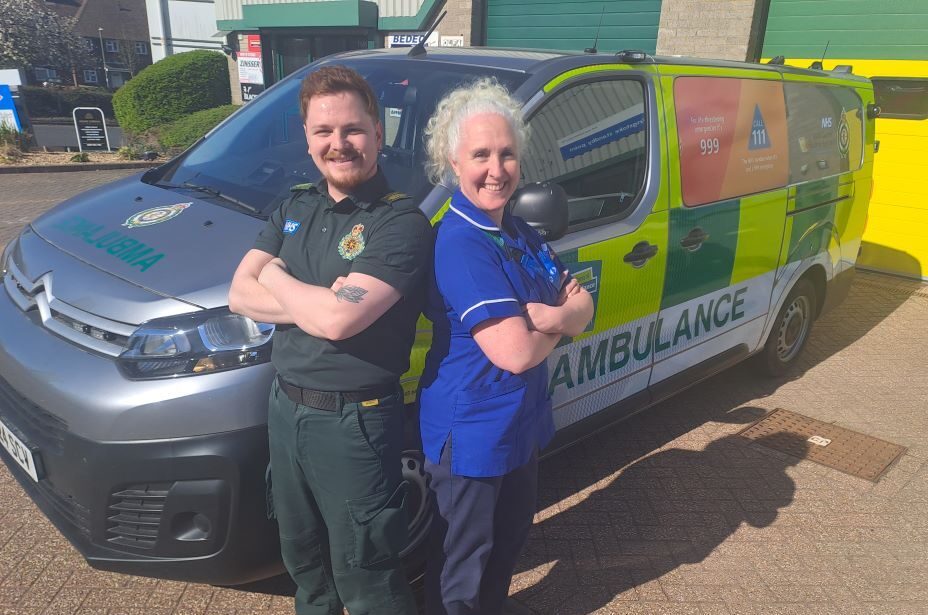South Central Ambulance Service NHS Foundation Trust (SCAS) is today launching a month long campaign to raise awareness of falls and frailty, with calls to the trust’s 999 service from such patients now totaling around 3,000 every month.
Across the UK each year, ambulance services respond to approximately 700,000 emergency calls related to falls among patients aged 65 and over, accounting for about 10% of all 999 calls. Falls amongst this age group are estimated to cost the NHS over £2.3 billion annually, with the vast majority of expenditure related to hip fractures.
Beyond the financial costs, falls can have a devastating effect on the lives of older individuals, leading to serious injuries, loss of independence and a decreased quality of life. Moreover, the psychological impact, including the fear of falling again, can result in reduced physical activity and social isolation.
Jon Lloyd, specialist practice manager at SCAS, said: “Falls in older adults often result from a combination of intrinsic and extrinsic factors. Intrinsic factors include muscle weakness, poor balance, visual impairments and the side effects of certain medications. Extrinsic factors encompass environmental hazards, such as poor lighting, slippery floors and unsecured rugs.”
“Addressing those wide-ranging causes requires a multifaceted approach, one of which is the falls and frailty services that SCAS has developed with our partners in Hampshire, Berkshire and Oxfordshire. Through working together more closely, we can improve the response strategies of emergency and wider NHS and social care services to this large cohort of patients and develop preventative measures.”
The falls and frailty care service in Hampshire is a partnership between SCAS, Hampshire and Isle of Wight Healthcare NHS Foundation Trust and Hampshire Hospitals NHS Foundation Trust (HHFT). A dedicated vehicle – the frailty car – is crewed by a specialist paramedic from SCAS and frailty specialist clinicians from Hampshire and Isle of Wight Healthcare and HHFT. The team carry adaptive equipment to support and facilitate therapeutic interventions and assessments to treat patients in their own home.
The team can be sent to patients who have had a fall or who are displaying symptoms associated with frailty in a number of different ways: via a call to 999 or NHS 111, as well as by referrals from GPs. They can assess and treat underlying illnesses and minor wounds, assess mobility and function, provide appropriate equipment so patients can remain safely at home, with wrap around support provided where needed with follow-up appointments from urgent community response teams.
Maddie Jones, falls car lead at Hampshire & Isle of Wight Healthcare NHS Foundation Trust, said: “The frailty practitioners bring a wealth of frailty expertise from therapy and nursing backgrounds. When they can identify why a fall has occurred, they are able to immediately implement preventative and educational strategies to prevent further falls and the likelihood of serious injuries occurring. When a fall is unexplained, they can investigate further including carrying out instant point of care diagnostic blood tests.”
“The ability to access such clinical expertise means a ‘hospital at home’ treatment plan can be immediately created on scene. If additional support is required to enable treatment to continue at home, referrals to local authority adult services, community reablement and rapid response service can also be made immediately. Finally, if there are additional medical concerns that need assessment, it can be arranged for the patient to be seen by the Frailty Same Day Emergency Care team at Hampshire Hospitals for specialist, frailty-focused care.”
As well as highlighting the innovative work of falls and frailty partnerships across the South Central region, the month long campaign will also raise awareness of the work of SCAS’ volunteer community first responders in attending non-injury fall call outs to alleviate pressure on emergency ambulances, information to allow the public to identify and remove potential trip hazards for vulnerable patients at home and work, as well as self care advice from NHS 111 clinicians that can help elderly patients or their carers reduce the risks of becoming ill, support treating common illnesses at home and when to seek further help.
Pictured: Luke Bawden, Specialist Paramedic with SCAS, and Vicci Wells, Frailty Practitioner with Hampshire and Isle of Wight Healthcare NHS Foundation Trust.

